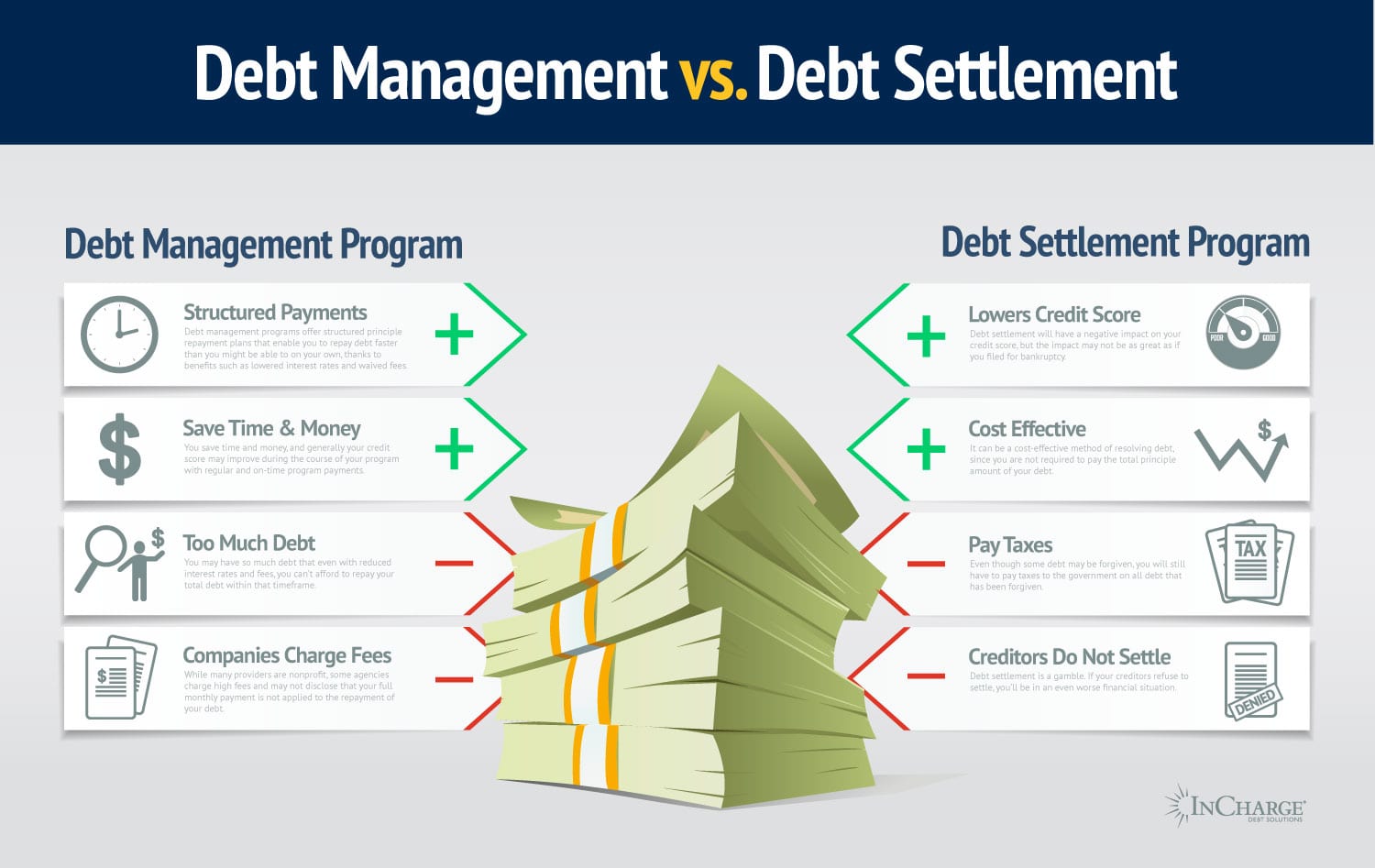Professional Tips and Techniques for Applying a Successful Financial Obligation Administration Plan
When it comes to navigating the complexities of debt monitoring, having a well-thought-out strategy is crucial for attaining financial security. From analyzing your current monetary standing to bargaining with financial institutions, each step plays an essential role in forming an effective debt monitoring plan.
Assessing Your Existing Financial Scenario
Before starting a financial debt administration strategy, it is vital to thoroughly review your present monetary standing. Recognizing your financial scenario is the foundational action in the direction of successfully managing and minimizing your debt. Begin by putting together a detailed checklist of all your financial obligations, including impressive equilibriums, rates of interest, and minimal regular monthly settlements. This will certainly provide a clear introduction of the extent of your financial commitments. Furthermore, examine your earnings resources and regular monthly expenses to establish your disposable income available for debt payment.

Creating a Realistic Spending Plan
Understanding your existing monetary situation lays the foundation for establishing a reasonable spending plan that straightens with your financial debt administration objectives and economic capabilities. When creating a spending plan, it's important to accurately track your revenue, costs, and debt commitments. By categorizing your expenditures, you can determine locations where you may require to cut back to release up funds for debt repayment.

Prioritizing and Dealing With Financial Debts
To successfully restore control of your finances and job in the direction of monetary stability, focusing on and tackling your financial obligations is an important step in your debt monitoring strategy. Determine high-interest debts that are costing you the most cash and prioritize paying them off.
After identifying your high-interest financial debts, think about using strategies like the financial debt snowball or debt avalanche method to pay them off methodically. The debt snowball approach includes paying off the tiniest debts initially, while the debt avalanche approach prioritizes financial obligations with the highest rates of interest. Select the approach that lines up finest with your monetary objectives and inspires you to maintain making progress.
Furthermore, consider discussing with financial institutions for lower rates of interest or establishing up a payment plan if you're battling to meet your present commitments. Seeking support from a debt counselor or economic advisor can likewise see this website supply beneficial insights and assistance on just how to effectively tackle your debts - debt management plan services. By prioritizing and resolving your financial debts strategically, you can lead the way towards a debt-free future and improved economic wellness
Discussing With Lenders
When engaging in debt management, bargaining with financial institutions is a vital step towards locating equally beneficial solutions for financial obligation repayment. Open interaction with lenders can lead to modified layaway plan, lowered rates of interest, or perhaps negotiation offers. Prior to initiating arrangements, it is important to have a clear understanding of your financial scenario, including your earnings, costs, and the overall quantity of financial obligation owed. This info will not only assist you make practical deals however likewise show to financial institutions that you are committed to dealing with the financial debt.

Structure Healthy Monetary Routines
Incorporating constant budgeting practices is vital for cultivating healthy and balanced economic routines. Budgeting allows individuals to track their revenue and expenditures, enabling them to make informed choices concerning their monetary concerns. Establishing certain financial objectives, such as saving for emergency situations or retired life, can offer a clear roadmap for managing money successfully.
An additional key facet of structure healthy financial habits is living within one's means. This involves costs much less than what is made and staying read what he said clear of unnecessary debt. Adopting a thrifty state of mind and differentiating in between needs and desires can help individuals make even more sensible costs options.
Routinely evaluating financial statements and keeping an eye on credit reports are crucial practices that advertise economic recognition and duty. By staying informed regarding their financial standing, individuals can recognize potential problems at an early stage and take positive steps to resolve them.
In addition, establishing a cost savings routine, despite having percentages, can contribute considerably to lasting monetary view it safety and security. Conserving consistently not just develops an economic cushion for unforeseen costs however additionally fosters a feeling of technique and responsibility towards cash management. By regularly exercising these routines, people can lay a solid structure for a steady monetary future.
Verdict
To conclude, executing a successful financial debt management strategy requires a complete assessment of one's economic situation, the advancement of a sensible budget, prioritizing and tackling financial obligations, bargaining with financial institutions, and building healthy monetary practices (debt management plan services). By adhering to these professional tips and strategies, people can take control of their funds and job towards accomplishing monetary security and liberty from financial debt
Understanding your existing monetary situation lays the foundation for creating a realistic budget that aligns with your debt monitoring goals and monetary abilities.To successfully regain control of your finances and work towards economic stability, focusing on and tackling your financial debts is a crucial action in your debt administration strategy.After recognizing your high-interest financial obligations, think about utilizing techniques like the financial debt snowball or financial obligation avalanche approach to pay them off methodically. The financial obligation snowball method involves paying off the tiniest financial debts initially, while the financial obligation avalanche technique prioritizes financial obligations with the highest possible passion rates.When involving in debt monitoring, discussing with lenders is an essential step in the direction of finding mutually valuable services for financial debt payment.